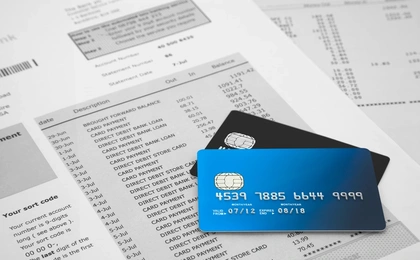The Bank of England has officially cut the base rate for the second time this year — a move that is already impacting everything from mortgages to credit card bills.
But what does a lower base rate actually mean if you’ve got credit card debt right now? Let’s break it down.
🗓️ What's happening with the base rate?
The base rate is the interest rate set by the Bank of England. It helps decide how much interest people pay when they borrow money — like with credit cards, loans or mortgages.
On 8th May 2025, the Bank of England reduced the base rate from 4.5% to 4.25%. It’s the second cut this year. The Bank hopes this will help the economy and ease pressure on people’s wallets.
💳 Will your credit card bill go down too?
Not always — but it might.
Some credit cards have an interest rate that follows the base rate. If yours does, your interest will likely go down now the base rate has dropped.
But most credit cards don’t work like that. Many lenders choose their own rates. That means your card’s interest might stay the same — even if the base rate falls.
Credit card rates aren’t directly tied to the base rate. Lenders set them based on risk, demand, and their own costs — so even though the base rate has been cut, most credit card interest rates haven’t budged yet.
📊 Why doesn't the interest always go down?
Lenders don’t have to cut their rates when the base rate drops. Some do, but many don’t.
In fact, credit card interest has stayed high recently — often over 20% — even though the base rate has been falling. The average credit card APR is now over 35%, a significant increase from around 31% a year ago.
✅ What can you do now?
Even if your rate doesn’t change, there are still ways to save money. Here are a few tips:
- Pay more than the minimum – this helps shrink your debt faster and cuts interest
- Look for a balance transfer – some cards offer 0% interest for a set time
- Check your credit score – a better score can help you get lower rates
- Ask your lender for help – they may offer support if you’re struggling
👉 And remember, if you pay off your full balance each month, you won’t pay any interest.
Tips for reducing your credit card costs:
- Check if your card tracks the base rate – If it does, your rate should drop soon.
- Look into balance transfer deals – These can offer 0% interest for a set period, potentially saving you hundreds.
- Pay more than the minimum – Paying extra each month helps reduce debt faster and cuts interest.
- Boost your credit score – A higher credit score can help you access lower rates.
- Redirect savings – If your mortgage or other borrowing is now cheaper, use the difference to chip away at credit card debt.
💡 What to take away
The base rate has come down — but most credit card interest rates haven’t. That means now’s the perfect time to review what you’re paying and take action.
Check your rate, explore your options, and see where you could save. A few small changes today could save you a lot in the long run.
You’re in control — and every step you take puts you in a stronger spot.
Fiona is a personal finance writer with over 7 years’ experience writing for a broad range of industries before joining Ocean in 2021. She uses her wealth of experience to turn the overwhelming aspects of finance into articles that are easy to understand.










